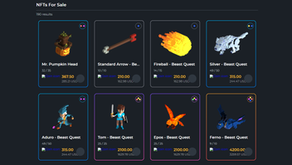
Many people and companies in the video game industry have voiced their support for the African American community in the wake of the police killings of unarmed black Americans, with several game publishers and developers releasing statements in support of them and their work. Video game publishers and developers have publicly denounced racial injustice. Sony and Microsoft showed somewhat rare cooperation on this front, with Microsoft retweeting Sony's statement, adding, "We stand together." Several other companies have come out with similar statements, showing support all over social media.
Companies like Sony have participated in more concrete advocacy, however. The company postponed its PS5 reveal event and reportedly matched donations from game dev like Naughty Dog's Neil Druckmann. Others have taken symbolic action with monetary consequences, like Rockstar's shutdown of GTA Online's massively popular servers during George Floyd's memorial service.

EA, often thought of as one of gaming's greediest companies by many fans, implemented a fairly proactive plan for giving back, pledging to donate $1 million to anti-racist organizations, "double match" employee donations through June, give all employees an extra, paid volunteering day, and engage in more conversations with its black employees.
Only 2% of people working in the industry identify as black, African American, African, or Afro-Caribbean, according to a 2019 International Game Developers Association study, compared to the U.S.'s 13% black population. Despite this, many games created by black people are already out there for players to support. Buying black-developed games and the merchandise associated with them is one of the most direct ways to support black developers - not to mention a pathway to some beautiful and creative experiences. If black developers are able to sustain themselves with the games they create, they're more likely to be able to pursue development full-time, potentially bumping up that 2% statistic.
Now to African Americans and their history in the world of game development.

Gerald “Jerry” Lawson and Ed Smith played important roles in the burgeoning video game industry. Working in Silicon Valley in the 1970s, Lawson led the team that designed the
Fairchild Channel F, the first home video game console with removable game cartridges. This revolutionary approach to video games made previous consoles with dedicated Pong game variations virtually obsolete as consumers could purchase a growing library of different games for their systems.

When Atari debuted its cartridge-based Video Computer System in 1977, Ed Smith was already hard at work co-designing the MP-1000 for APF Electronics. The console launched in 1978 and over the next two years APF added a personal computer called the Imagination

Machine and other improvements that generated only modest sales. The Channel F and the MP-1000 couldn’t contend with growing competition from a surge of personal computers and Atari’s VCS, whose home ports of best-selling arcade games such as Space Invaders, Asteroids, and Pac-Man helped sell 30 million units. Smith left the game industry, but in the early 1980s Lawson founded Videosoft—the first African American-owned video game design company—to develop games for the Atari 2600.
Although the company closed in the wake of the 1983 video game industry crash, Lawson’s efforts blazed a trail for future black game developers such as Antonio “Tony” Barnes (Strike series, Medal of Honor, and Strider), Gordon Bellamy (Madden NFL series), Morgan Gray (Tomb Raider series), Marcus Montgomery (Rock Band 3 and Zombie Gunship Survival), Felice Standifer (ATV Offroad Fury series), Lisette Titre-Montgomery (Dance Central 3 and South Park: The Fractured But Whole), and Karisma Williams (Kinect Adventures! and Forza Motorsport 6).

Another piece of black video game development history involves Atari’s “Wonderwoman” Alice Washington, who installed printed circuit boards into arcade game cabinets while Willy Philips learned every position on the company’s arcade game production line. The same December 1982 Black Enterprise article that profiled Lawson and Smith, also interviewed two black women who owned video arcade businesses in Washington, D.C. Delores Williams and Delores Barrows, owners of Space II Arcade and TREATS Arcade respectively, ran coin-operated arcade businesses at the height of the video game arcade craze. Unfortunately, outside of these newsletters and magazines, there are few sources to document the workers and business owners such as Washington, Philips, Williams, and Barrows.
Modern Times
Let’s bring it back to modern times shall we? There is a small amount of African Americans in the video game industry. Only 2.5% of game developers are of color. While scarce, there are African Americans doing some amazing work in the gaming industry. Here are just a few for you to look out for.
Gordon Bellamy

Bellamy started his career as a lead designer for EA’s Madden franchise. He also served as executive director of the International Game Developers Association. He recently co-founded Hangry Studios, a consulting firm focused on quality assurance and automation for PC, mobile, and virtual reality games.
Morgan Gray

Gray has been in the video game industry for quite some time. He’s worked on a number of best-selling games including Tomb Raider, Star Wars, and The Bureau: XCOM Declassified.
Lisette Titre

ACG artist and computer animator Lisette Titre has contributed to some of EA’s highest profile games, including Tiger Woods Golf for Nintendo’s Wii, The Simpsons, and Dante’s Inferno.
Karisma Williams
Williams is creative director of Matimeo.com and works at Microsoft as a senior experience developer/designer for Xbox Kinect, which lets players interact with video games without the use of a controller.
Keep your eyes and ears out for African Americans in the world of game development, voice acting in gaming, music in gaming, even in playing games like on twitch, in esports, etc. They are there, holding it down and working their butts off.













Comments